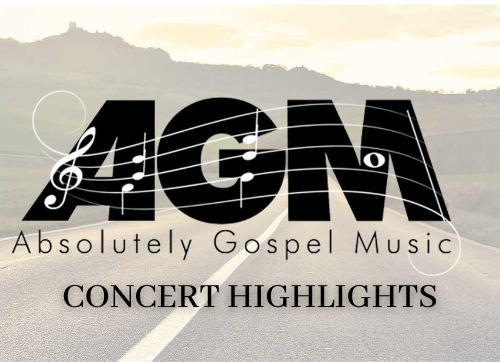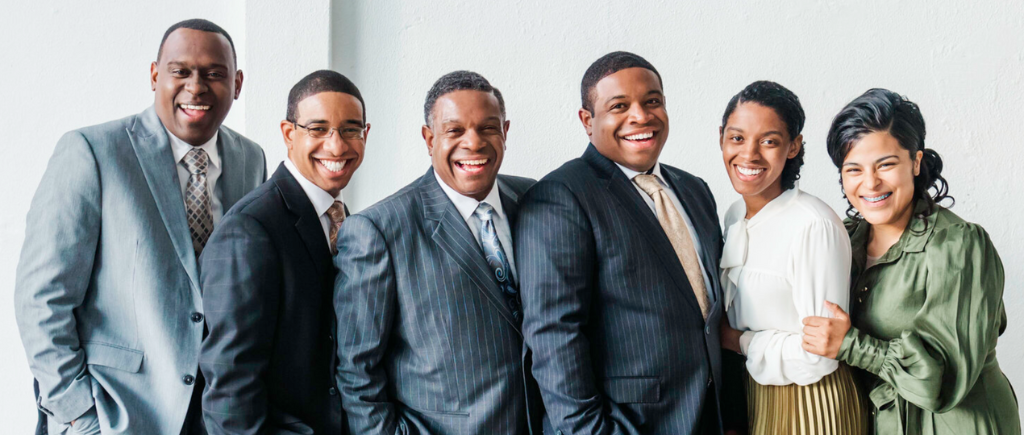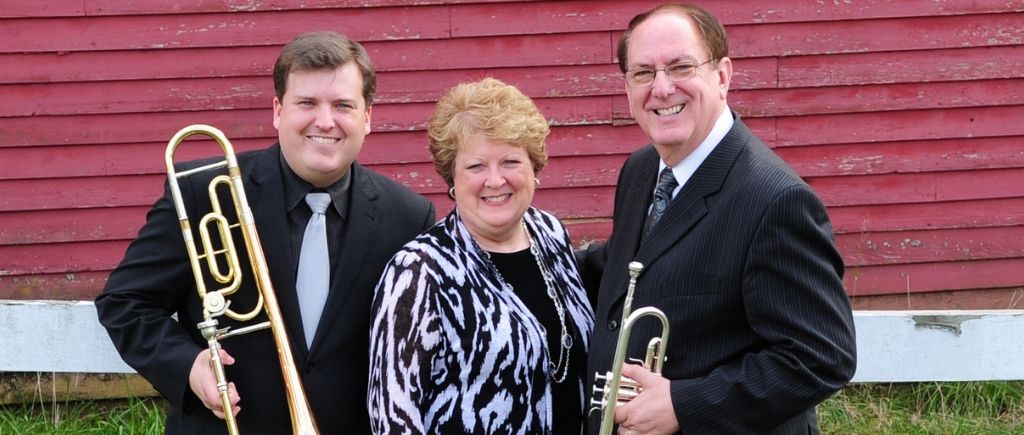Getting to Know Alan Kendall

Staff writer Andrew Stephens sits down with fellow AGM writer, recording artist, and Southern Gospel historian Alan Kendall in this candid interview.
Andrew Stephens: For readers unaware, share your journey to Gospel Music today.
Alan Kendall: First of all, thank you so much for interviewing me…I’ve never done one of these before, ha!
My career began with Gerald Williams and the Melody Boys Quartet out of Little Rock, Arkansas, on February 3, 2009. I traveled with them almost two years before I got married and returned home to Georgia. I traveled for around a year with John Rulapaugh and Josh Garner in Freedom Trio, and then I spent three years with the Rebels Quartet. After my first daughter was born, I decided that with a full-time job and my “singing itch” that it would be better for my family if I made out my own musical schedule. So in the Fall of 2014, I began a solo career. In the summer of 2016, I began filling in with Phil Barker and Rick Sheets in Jordan’s Bridge, and by January 2017, I joined them permanently. Burman Porter joined us this past November, making us a quartet. Phil, Rick, and Burman are the best team I could ever ask to work with, and three outstanding men in general.
When I began my solo schedule, I had no idea that it would be as lucrative as it has become. In my first year, as a “part-time” soloist, I performed about 75 concerts. Combining that with my travels with Jordan’s Bridge has allowed me to re-enter gospel music full-time, and frequently take my wife and/or children with me. I am living the dream!
AS: To many, the name, Alan Kendall, has been associated more with lead/baritone vocalist rather than soloist. Describe the experience performing and recording in a solo format.
AK: The greatest attributes of performing solo are also among the greatest difficulties when performing solo. I enjoy being my own manager, driver, booking agent, stage hand, and emcee, but at the same time I am also my own manager, driver, booking agent, stage hand, and emcee! On top of that, I am the only one on stage during those concerts. The only rest period is for talking, and the only people to play off of in concert are the people in the audience. The latter has really sharpened my abilities all around in communicating with people. It is a lot of extra work, but in the end, it is extra work that I don’t mind doing. More than anything, it is only by the supreme guiding Hand of God that I can accomplish any of this. He has taken me as a timid and raw individual who is talentless without Him, and shown me the abilities I can place before people when I trust Him with them.
AS: Who/what have been inspirational in your music selection? What sets them apart in your musical taste?
AK: First of all, I love almost all types of music. The Melody Boys early on played a major role in shaping how I choose songs. Gerald Williams said, “Never pick filler songs,” and I don’t. At the same time, I realize that there are songs out there with a message that need hearing, but do not necessarily work well on stage. This grants the opportunity for the “artist” in me to have a lot of fun in the studio. My other musical inspiration is Michael Buble’. I love how Michael breathes new life into old standards, and then introduces a select few new songs that quickly become standards themselves. It reminds me that the strength in selecting music is never centered around picking exclusively old songs or new songs, but picking out all GOOD songs that will be refreshing.
AS: Many Southern Gospel fans count themselves as a Southern Gospel history buff (rightly so!). However, you devote much time to understanding how this music has worked through many decades of change and progress. How has learning the history of this music changed your understanding of a given area of Gospel Music?
AK: My friend Charlie Waller said to me numerous times, “If you don’t know where you’ve been, you don’t know where you’re going.” Friends like Waller, John Crenshaw, Wayne Hilliard, Dean Adkins, and most of all my dad and mom, very much nurtured my love for the music, as well as my appreciation for the past. Knowledge of the old songs plays a big role in my performances and recording. Everyone loves to hear something familiar that they can sing along to. Watch Buble’, Alan Jackson, Dailey and Vincent, or even someone in the pop field like Justin Timberlake, and you will take note that they are usually staging something in each program that audiences recognize within the opening bars that may not necessarily be theirs originally. With a lot of our fan base being 50+ in age range, hearing a song like Martha Carson’s “Satisfied” or a hymn like “Blessed Assurance” early in my program opens them up to new songs
AS: Over the years, trends come and go for music – not just Southern Gospel, but all other forms of music. What do you attribute to Southern Gospel’s staying power in the midst of so many changes?
AK: Initially, southern gospel is much like old country. It is warm, it is familiar, and it automatically touches upon a sentimental side. Few have grown up not hearing the hymns and convention songs in some place or time in their lives. More than anything, the stories perk the ear. Where praise and worship is about evoking an “in-the-moment” time of praise and deep personal worship among God’s people, a lot of southern gospel’s best songs tell stories that by the final notes make you stop and say, “Wow”. It is not always easy to sit and take the time to let those stories sink in, but when they do, the message leaves an impact forever. That’s why, in my opinion, southern gospel still hangs on.
AS: As Southern Gospel progresses, what are some of the challenges you see in the Southern Gospel music industry?
AK: Southern gospel is looked upon by the masses as a “retro” type of music. There is nothing wrong with that. We can pay attention to latest trends and use some of them, but we cannot lose sight of who we are. Look again at Dailey and Vincent and Michael Buble’. They thrive on “retro”. Most young people love our type of music when they hear it. They really do. Only with today’s trends and fast pace, most of them just don’t know exactly what to do with it. This is reflecting on our churches right now as well. Also, here stand some of our “staunch traditionalists”, who refuse to embrace what the younger audiences use as worship, with some even calling it “devil’s music”, which is a lie from the enemy himself. The sooner we stop alienating each other and begin supporting each other, even if some of the music may be a little out of our range of familiarity, the sooner EVERYONE wins, and the sooner ALL forms of Christian music properly evangelize.
AS: On the lighter side – share with us your dream traditional male quartet.
AK: As far as today’s best are concerned whom I have not traveled with:
Bass singer – David Hester; Lead singer – Arthur Rice; Tenor singer – Jonathan Price; Baritone – I would fight Scotty Inman to sing baritone with these three gentlemen, but the problem is Scotty would probably win! David, Arthur, Jonathan, and Scotty are unbeatable on vocals, plus outstanding team players on stage. My band would be Jeff Stice, Corey Pearson, Scoot Shelnut, and Jordan Hamby.
AS: What is the best way to contact or book Alan Kendall?
AK: I and/or Jordan’s Bridge would LOVE to come sing for you! Whether it be with the energy of a male quartet or with the intimacy of a solo performance, you can call me to make one of those happen! You can call 706-970-0246, email akendall83@aim.com, and/or visit my website at www.alankendallmusic.com. Thank you all for your support!!






